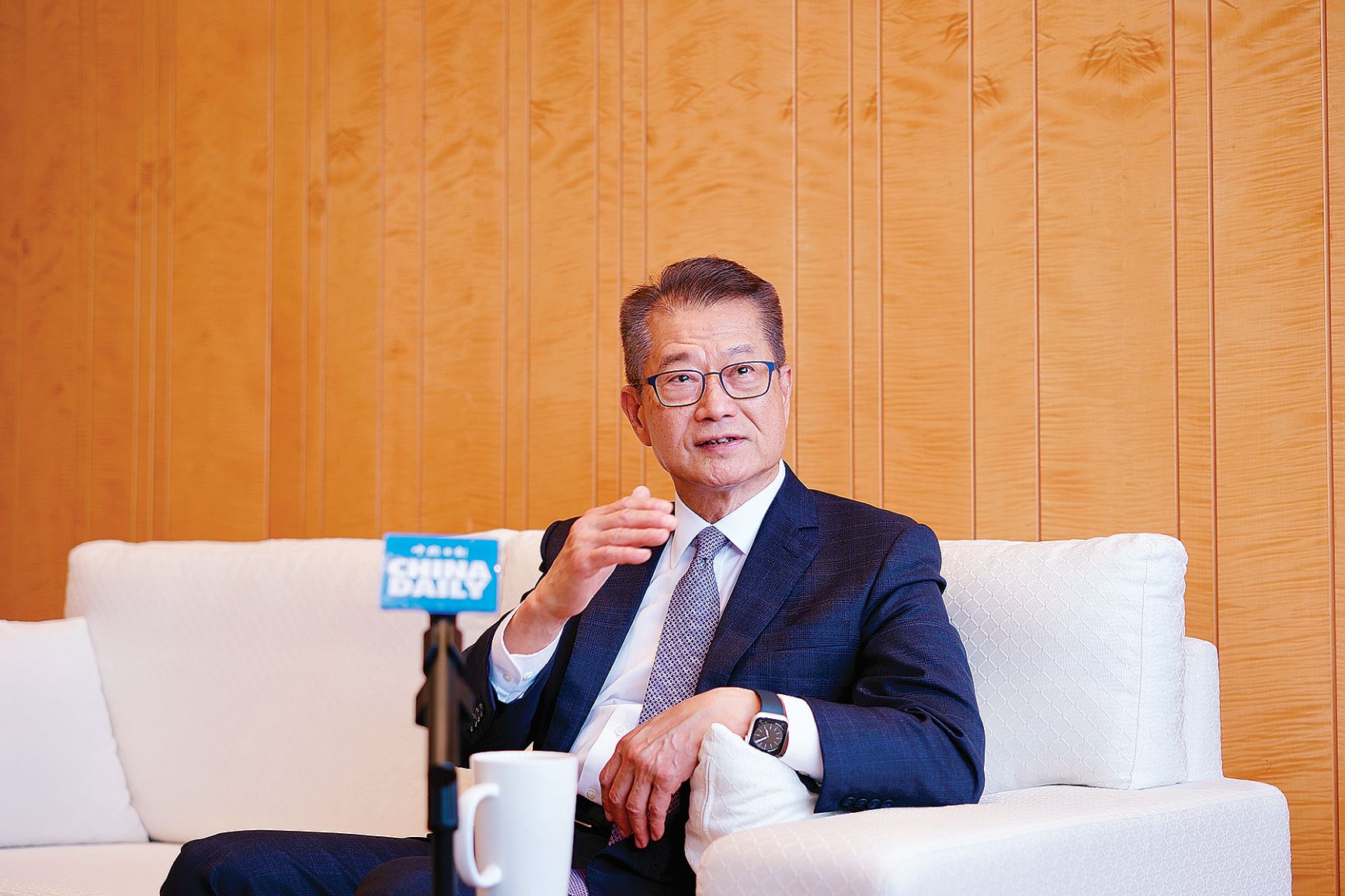
Hong Kong regulators have received “a number of applications” from entities seeking to become qualified stablecoin issuers in the city, and licenses will begin to be issued in the coming months, Hong Kong Financial Secretary Paul Chan Mo-po told China Daily in a recent interview.
As one of the first movers in global regulation for digital currencies, Hong Kong has made the development of fiat-pegged stablecoins its first step, with plans to launch ones linked to other assets that could benefit the real economy, Chan said while reflecting on the city’s growth over the past three years under the current administration.
The announcement follows the passage of Hong Kong’s Stablecoins Bill by the Legislative Council in late May, a move that positions the special administrative region as one of the first jurisdictions worldwide to legislate stablecoins.
The Stablecoins Ordinance, which will take effect on August 1, requires that any individual or entity issuing fiat-backed stablecoins in Hong Kong — or those claiming to be pegged to the Hong Kong dollar, regardless of where they are issued — must secure a license from the Hong Kong Monetary Authority.
Many local and international companies have recently announced plans to apply for stablecoin licenses in Hong Kong. They include tech giants JD.com and Ant Group, banking institutions such as Standard Chartered, and some logistics firms. Some of them have shared ambitions to launch their own stablecoins later this year.
Hong Kong is taking a “step-by-step” approach to developing stablecoins, with regulation being the first step to ensure the sector grows in a balanced manner — fostering both innovation and “responsible, sustainable” development, Chan said.
ALSO READ: HK logistics firm to apply for stablecoin issuer license
Since July last year, several financial and technology firms have already been testing their applications in the HKMA’s stablecoin issuer sandbox.
As part of its phased plan, the city will first focus on stablecoins pegged to fiat currencies, while the second step, Chan said, might involve stablecoins linked to other assets that are “real and integrated with the real economy”.
The SAR government’s “philosophy” in this process, the finance chief noted, is that stablecoins must have practical use scenarios, instead of being speculative instruments.
He emphasized that the market has the wisdom to explore the applications for stablecoins, and market participants who identify viable use cases are encouraged to apply for regulatory approval.
“The stablecoin, particularly when it is referenced to fiat currencies, (has) many user case scenarios,” Chan said, such as being used for cross-border payments to enhance efficiency and reduce costs.
Hong Kong is not alone in realizing the potential of digital assets.
The current administration of the United States has shown great interest in this sector since it took office in January, Chan said, adding that he believes digital assets will be a key area of fintech innovation in the future.
Chan emphasized the SAR’s role as a testing ground for China’s financial innovation. Hong Kong’s early exploration could provide insights for the Chinese mainland if it considers developing stablecoins or other cryptocurrencies, he said.
In a blog posted on Sunday, Chan said Hong Kong is expected to become the world’s top cross-border asset management center within two to three years. As of March, the number of registered funds in the city reached 976, with net inflows increasing 285 percent year-on-year to $44 billion.
READ MORE: Legislation on stablecoins seen as a milestone for Hong Kong
Amid global uncertainties, Hong Kong is a stable and reliable safe haven for international capital thanks to its free port status and robust legal system, he said.


